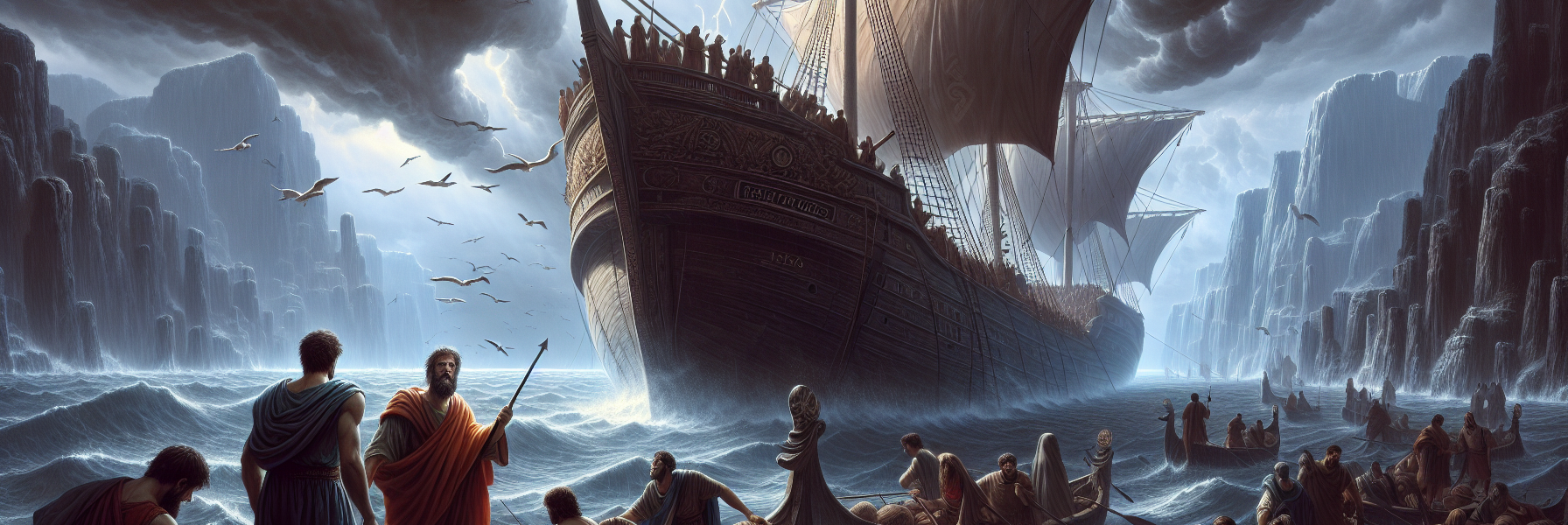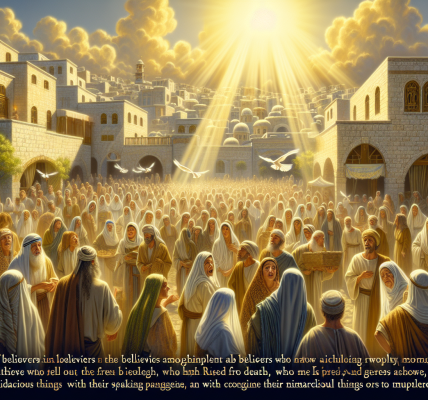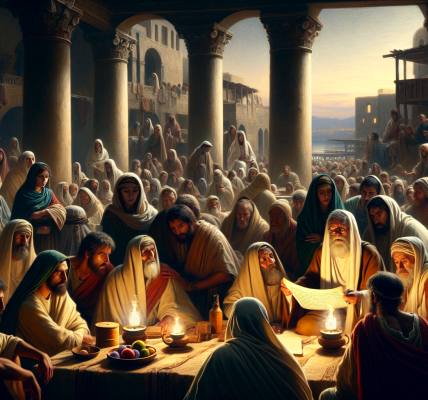**The Perilous Voyage: A Tale of Shipwreck and Salvation**
The Mediterranean Sea stretched endlessly beneath a sky heavy with the threat of winter storms. The year was nearing its end, and the season for safe travel had long passed. Yet, aboard a grain ship bound for Italy, the centurion Julius had made his decision—they would set sail, despite the dangers. Among the prisoners under his charge was a man named Paul, a traveler well acquainted with hardship, but also with the unseen hand of God guiding his steps.
The ship had already endured delays. From Caesarea, they had sailed north along the coast, stopping at Sidon, where Julius, moved by an unexpected kindness, had allowed Paul to visit friends and receive provisions. Then, battling contrary winds, they had tacked westward beneath the shelter of Cyprus, skirting Cilicia and Pamphylia until they reached Myra in Lycia. There, they had transferred to an Alexandrian vessel—a massive grain carrier bound for Rome, its hull laden with wheat from Egypt’s fertile fields.
For many days, progress was slow. The winds refused to cooperate, and the ship crawled along the coast of Cnidus before struggling southward toward Crete. At last, they reached the port of Fair Havens, near the city of Lasea. But the season was advancing. The Day of Atonement had come and gone, marking the time when seasoned sailors knew the sea grew treacherous.
Paul, though a prisoner, stood among the crew and travelers, his voice steady with conviction. “Men, I perceive that this voyage will end with disaster and much loss—not only of the cargo and ship but also of our lives.” His warning carried the weight of divine insight, but the centurion trusted the ship’s pilot and owner more than the words of a prisoner. Fair Havens was not an ideal harbor for winter, and most aboard agreed they should press on to Phoenix, a more sheltered port further west along Crete’s coast.
When a gentle south wind began to blow, they seized the opportunity, weighing anchor with renewed hope. But their optimism was short-lived. Without warning, a tempestuous wind—a northeaster known as *Euraquilo*—swept down from the island’s mountains, hurling the ship into the raging sea. The crew fought desperately, but the vessel was no match for the storm’s fury. They lashed ropes around the hull to hold it together, then lowered the sea anchor, praying the ship would not be dashed against the rocks of Syrtis.
Day after day, the storm raged. The sky vanished behind black clouds, and the sun and stars were blotted out. The passengers, drenched and exhausted, gave up all hope of survival. Even the seasoned sailors trembled as the ship groaned under the strain.
Then, on the fourteenth night, as the waves roared and the timbers creaked, Paul stood in their midst. “Men, you should have listened to me and not set sail from Crete,” he said, his voice cutting through the howling wind. “But now, I urge you to take heart, for not one of you will perish—only the ship will be lost. For last night, an angel of the God to whom I belong and whom I serve stood beside me and said, ‘Do not be afraid, Paul. You must stand before Caesar, and behold, God has granted you all those who sail with you.’ So take courage, men, for I believe God that it will be exactly as I have been told.”
His words kindled a fragile hope. Yet, as the storm raged on, the sailors, fearing they were nearing land, took soundings—first twenty fathoms, then fifteen. Panic set in. Some tried to abandon ship, lowering the lifeboat under the pretense of laying out more anchors. But Paul warned the centurion, “Unless these men stay in the ship, you cannot be saved.” Julius ordered the ropes cut, and the lifeboat drifted away into the darkness.
As dawn approached, Paul urged them all to eat. “Today is the fourteenth day you have waited in suspense without food,” he said. “Take nourishment, for this is for your survival. Not a hair from your head will perish.” Then, before them all, he took bread, gave thanks to God, and began to eat. Strengthened by his faith, the others followed.
When daylight came, they saw land—an unfamiliar bay with a sandy shore. Cutting loose the anchors and untying the rudders, they hoisted the foresail and made for the beach. But the ship struck a sandbar and ran aground. The stern began to break apart under the pounding waves.
The soldiers, fearing the prisoners would escape, drew their swords to kill them. But Julius, determined to save Paul, stopped them. “Those who can swim, jump overboard first!” he commanded. The rest clung to planks and debris. And so, just as God had promised, every last soul reached the shore alive.
As they stood on the beach, shivering but alive, the islanders—later revealed to be from Malta—kindled a fire to warm them. Paul, gathering wood, was bitten by a viper that latched onto his hand. The islanders gasped, certain he would die. But Paul shook the creature into the flames, unharmed. Amazed, they whispered among themselves, “This man must be a god.”
And so, through storm and shipwreck, the hand of God had guided them. Not one life was lost. For Paul, the journey to Rome was far from over—but the Lord had spoken, and His word would not fail.




